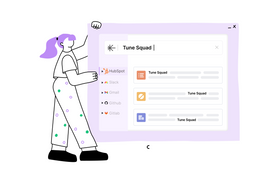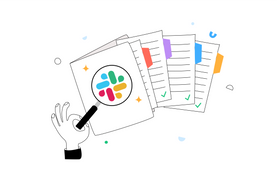What Are the Best Search Strategies for Databases?
Here are a few search strategies that will help you find the information you need more quickly and efficiently.
Published May 24, 2022
Databases can be a great resource for research, but finding what you need can be difficult if you don't know where to start. Here are a few search strategies that will help you find the information you need quicker and more efficiently.
Best Search Strategies for Databases
1. Boolean Searching
Boolean searching is used to find documents that contain specific words or phrases. This type of searching is often done using AND (meaning both words need to appear) or OR (one word or the other).
Example: “(‘tree’ AND ‘bush’) OR ‘shrub’”
2. Wildcard Searching
Wildcards are symbols that represent any character and can be used to replace characters in a string. For example, if you want to look for documents containing the word “papaya” but don't know how many times the letter 'a' appears in the word, you could use the wildcard symbol (*), which would allow you to enter any number of "a's" into your search.
3. Phrase Searching
Most systems allow you to search for phrases, allowing you to make sure that your search results focus on your topic.
When searching for two words together, place quotation marks around the phrase. For example, "gardening techniques."
Other search systems, however, may require the use of a connector word, such as:
- gardening w techniques
- gardening ADJ techniques
How to Improve Search Strategies
One definite way to improve your search strategies is to implement an intranet search engine. A well-functioning intranet search engine can save employees a lot of time and hassle.
Enterprise search engine features can index all of your company's content like documents, websites, emails, and videos. Intranet search engines also allow employees to search for content by keyword or file type.
The benefits of intranet search engines include the following:
- Helping employees find information quickly and easily
- Can be customized to meet the specific needs of your company
- Helping to organize and store information in a central location
Related Articles

Slack Search Sucks: Here’s Why (And 5 Tips to Help You Find What You Need)
Noam Limor
May 17, 2023

Why Your Engineering Team Needs a Multi-Platform Search Engine for Their Code Repository Tools
Itay Itzhaki
June 7, 2022

GitHub Search Not Working? Troubleshooting Solutions and Tips
Marcel Deer
May 17, 2023

4 Easy Slack Search Commands to Enhance Productivity
Marcel Deer
March 30, 2023

Knowledge Management vs Document Management: Key Differences
Marcel Deer
November 5, 2023
Related Posts
Brody Hall
How to Search by Label in Trello
Ashley Stander